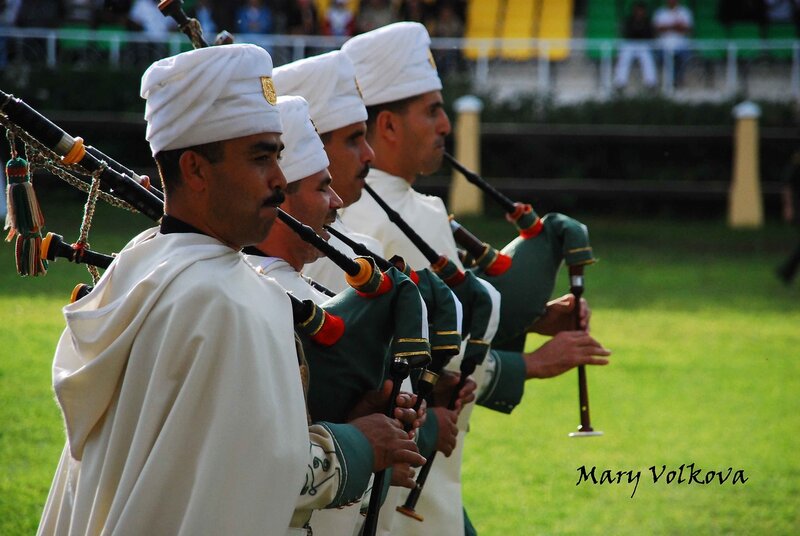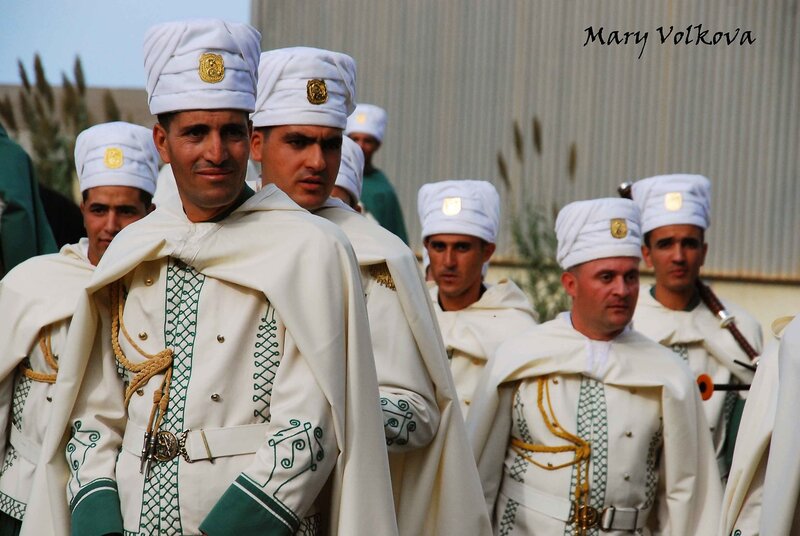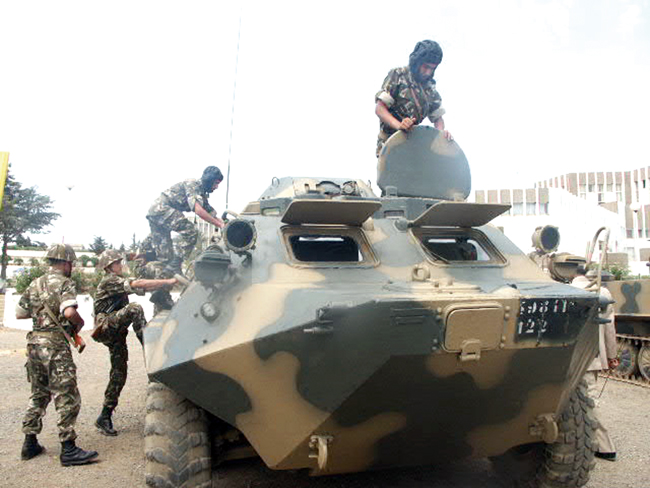 Gulf states seek to exploit the advantages of nuclear energy in the pursuit of peaceful projects, a Kuwaiti specialist said here yesterday.
Gulf states seek to exploit the advantages of nuclear energy in the pursuit of peaceful projects, a Kuwaiti specialist said here yesterday.Such projects are those useful in the generation of electric power and in the production of oil and gas, said Nader al-Awadhi, vice-president of the Kuwait Institute for Scientific Research (KISR).
Other applications for nuclear energy, he noted, were also of great benefit in the fields of agriculture, especially in livestock production, and water and in fighting diseases such as cancer and heart ailments.
Asked about the current extent of cooperation between the IAEA and Gulf states, al-Awadhi said it involved three areas. One being preparatory plans for the use of nuclear energy; another formulating legislature affecting the proper utilization of nuclear energy, and still another establishing effective programs to train Gulf citizens on harnessing the immense uses of nuclear energy for peaceful purposes.
Al-Awadhi, who acts as Kuwait's liaison with the IAEA, indicated that he had attended in Vienna a workshop last week -- sponsored by the IAEA -- for experts in nuclear energy from Asia, Arab and Gulf countries, aimed at chalking up a framework for nuclear cooperation among IAEA members for the upcoming ten-year period.
The workshop, he maintained, was useful for states like those of the Gulf region, with a modicum of knowledge in nuclear energy, to rub shoulders with much more experienced ones like Japan, India, and North Korea. To drive home what was learned in the workshop the IAEA is organizing another one in May, he said.

 The Critical National Infrastructure Authority (CNIA) is proud to support the International Security and National Resilience (ISNR) Exhibition and Conference, the leading event in the Middle East which focuses on homeland security.
The Critical National Infrastructure Authority (CNIA) is proud to support the International Security and National Resilience (ISNR) Exhibition and Conference, the leading event in the Middle East which focuses on homeland security. His Highness Lieutenant General Sheikh Saif Bin Zayed Al Nahyan, Deputy Prime Minister, Minister of Interior, will inaugurate the second edition of the International Security National Resilience (ISNR 2010) Abu Dhabi, organized by the Ministry of Interior in cooperation with Reed Exhibitions at the Abu Dhabi National Exhibition Center on March 1.
His Highness Lieutenant General Sheikh Saif Bin Zayed Al Nahyan, Deputy Prime Minister, Minister of Interior, will inaugurate the second edition of the International Security National Resilience (ISNR 2010) Abu Dhabi, organized by the Ministry of Interior in cooperation with Reed Exhibitions at the Abu Dhabi National Exhibition Center on March 1. Under the auspices of His Highness Sheikh Mohammed bin Rashid Al Maktoum, Vice President and Prime Minister and Ruler of Dubai, the Fourth World Run Race was organised yesterday afternoon by the UAE Ministry of Defense under the motto "Friendship through Sports" in line with the celebrations of the International Council of Military Sports (CISM) to mark the World Run Day, which was held at the same time in all countries.
Under the auspices of His Highness Sheikh Mohammed bin Rashid Al Maktoum, Vice President and Prime Minister and Ruler of Dubai, the Fourth World Run Race was organised yesterday afternoon by the UAE Ministry of Defense under the motto "Friendship through Sports" in line with the celebrations of the International Council of Military Sports (CISM) to mark the World Run Day, which was held at the same time in all countries. Crown Prince of Abu Dhabi and Deputy Supreme Commander of UAE Armed Forces HH General Sheikh Mohammed Bin Zayed Al Nahyan received yesterday the envoy of the First Vice-President of Sudan and Sudanese Minister of Foreign Trade James Kook and the delegation accompanying him.
Crown Prince of Abu Dhabi and Deputy Supreme Commander of UAE Armed Forces HH General Sheikh Mohammed Bin Zayed Al Nahyan received yesterday the envoy of the First Vice-President of Sudan and Sudanese Minister of Foreign Trade James Kook and the delegation accompanying him. Elite corps of the Gendarmerie, responsible among other duties for the protection of the President in a broad perspective, and for the protection of presidential resorts. Acts also as Honor Guard.
Elite corps of the Gendarmerie, responsible among other duties for the protection of the President in a broad perspective, and for the protection of presidential resorts. Acts also as Honor Guard.











 UAE to redesign and rebuilt BMP-3 with a front-mounted engine.
UAE to redesign and rebuilt BMP-3 with a front-mounted engine.



 This vehicle show in UAE"s IDEX 2007
This vehicle show in UAE"s IDEX 2007 Qatar and Saudi Arabia discussed various aspects of their relationship, including political, military and economic ties, at the second session of the Qatari-Saudi Coordination Council held in Doha.
Qatar and Saudi Arabia discussed various aspects of their relationship, including political, military and economic ties, at the second session of the Qatari-Saudi Coordination Council held in Doha. The Turkish M52T self-propelled howitzer is a Turkish made system based on an upgrade of US-built M52 artillery system.
The Turkish M52T self-propelled howitzer is a Turkish made system based on an upgrade of US-built M52 artillery system.  General Shaikh Mohammad Bin Zayed Al Nahyan, Abu Dhabi Crown Prince and Deputy Supreme Commander of the UAE Armed Forces, yesterday concluded a successful visit to Algeria that resulted in a number of agreements and talks that is expected to widen bilateral ties between the UAE and Algeria.
General Shaikh Mohammad Bin Zayed Al Nahyan, Abu Dhabi Crown Prince and Deputy Supreme Commander of the UAE Armed Forces, yesterday concluded a successful visit to Algeria that resulted in a number of agreements and talks that is expected to widen bilateral ties between the UAE and Algeria. The Algerian Ministry of Defence and the Emirate group, Aabar, have signed an agreement to manufacture military vehicles according to a report by a body of the National Popular Army (ANP) published in the El Djeich newspaper.
The Algerian Ministry of Defence and the Emirate group, Aabar, have signed an agreement to manufacture military vehicles according to a report by a body of the National Popular Army (ANP) published in the El Djeich newspaper. The UAE Armed Forces and Abu Dhabi Ship Building (ADSB) have finalized a contract amendment adding the Rolling Airframe Missile (Ram) Weapons Systems on all six Baynunah Class Corvettes already contracted to ADSB.
The UAE Armed Forces and Abu Dhabi Ship Building (ADSB) have finalized a contract amendment adding the Rolling Airframe Missile (Ram) Weapons Systems on all six Baynunah Class Corvettes already contracted to ADSB.
 The Saudi Arabian National Guard or SANG (aka White Army) is one of five branches or services of the Saudi Arabian Defence Forces/military. It serves both as defence force against external threats but as a security force against internal threats. It duties include protecting the royal family , guarding against coups,and protecting the Holy Places of Mecca and Medina.
The Saudi Arabian National Guard or SANG (aka White Army) is one of five branches or services of the Saudi Arabian Defence Forces/military. It serves both as defence force against external threats but as a security force against internal threats. It duties include protecting the royal family , guarding against coups,and protecting the Holy Places of Mecca and Medina. The Battle of Talas (怛羅斯會戰) in 751 AD was a conflict between the Arab Abbasid Caliphate and the Chinese Tang Dynasty for control of the Syr Darya. On July 751, The Abbasids started a massive attack against the Chinese on the banks of the Talas river; 200,000 Muslim troops (according to Chinese estimates) met the combined army of 10,000 Tang Chinese and 20,000 Karluks mercenary. Out of 10,000 Tang troops, only 2000 managed to return from Talas to their territory in Central Asia.
The Battle of Talas (怛羅斯會戰) in 751 AD was a conflict between the Arab Abbasid Caliphate and the Chinese Tang Dynasty for control of the Syr Darya. On July 751, The Abbasids started a massive attack against the Chinese on the banks of the Talas river; 200,000 Muslim troops (according to Chinese estimates) met the combined army of 10,000 Tang Chinese and 20,000 Karluks mercenary. Out of 10,000 Tang troops, only 2000 managed to return from Talas to their territory in Central Asia. Saudi Arabia's defence ministry will for the first time allow local firms to bid to supply basic materials excluding arms with the long-term goal of encouraging a domestic military industry, officials said.
Saudi Arabia's defence ministry will for the first time allow local firms to bid to supply basic materials excluding arms with the long-term goal of encouraging a domestic military industry, officials said. Facebook
Facebook Twitter
Twitter Google+
Google+ Rss Feed
Rss Feed

0 comments: